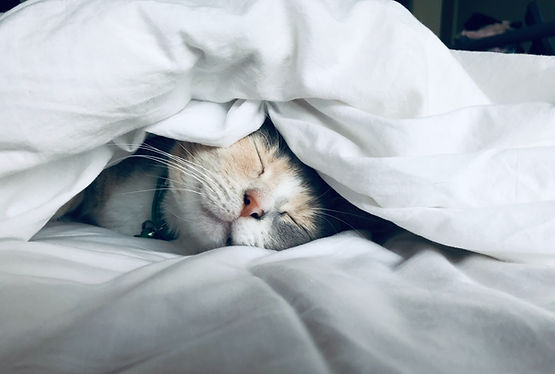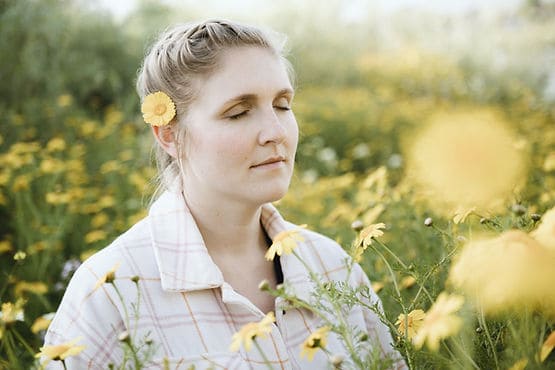How Your Day Shapes Your Night: Emotional Health and Better Sleep
We often think of sleep as something we “do” at night. But truly restorative rest starts the moment we wake up. The way we tend to our emotional wellbeing throughout the day shapes the internal environment that either supports or hinders emotional health and better sleep that is deep and nourishing.
During a recent Facebook Live in the Rise & Shine Menopower group, I spoke about the common struggles women face with sleep—particularly during the menopausal transition—but the insight applies to everyone. The message that rang most true as I spoke was this: our sleep reflects the way we live. It’s a mirror of how we’re holding ourselves, tending to our needs, and honoring our rhythms across the entire day.
The Real Culprit Isn’t Just Sleep Hygiene: Emotional Health & Better Sleep Go Hand in Hand
So many sleep struggles get boiled down to nighttime routines: blue light, caffeine, white noise, magnesium. While these strategies can absolutely help, they often miss the larger picture. If our days are full of pressure, self-neglect, or emotional suppression, we can’t expect our nights to be restful. A jangled nervous system doesn’t just shut off when the lights go out– it interrupts emotional health and better sleep alike.
Emotional health is the unsung hero of sleep quality. How we relate to our inner world—our thoughts, needs, disappointments, and desires—matters deeply. And unfortunately, much of the modern world encourages us to disconnect from ourselves. We override, push through, and stay up in our heads trying to “solve” exhaustion with productivity or perfection.
But what if the path to deeper sleep isn’t about doing more—but feeling more?

A Nervous System Perspective: Why Emotional Health and Better Sleep Require Daily Regulation
In today’s wellness circles, there’s been a lot of chatter about “lowering cortisol”—but that’s often an oversimplification. Cortisol isn’t the villain; it’s a vital hormone that helps us wake up, be alert, manage inflammation, and respond to stress. We need cortisol. It becomes problematic when our levels are chronically high or when we never get a chance to shift out of a stressed state.
Throughout a normal day, our nervous systems are designed to move in and out of sympathetic (activation) and parasympathetic (rest and digest) states. What we’re aiming for isn’t a flatline of calm, but rather a flexible, responsive rhythm—a regulated system that knows how to return to balance.
This is why I often encourage people to build in intentional downshifts throughout the day. Micro-moments of emotional tending. These don’t have to be dramatic or time-consuming. They might include:
- Taking a few deep breaths before switching tasks
- Naming an emotion and letting it move through you instead of pushing it down
- Sitting in the sun for a few minutes with no agenda
- Laughing with a friend
These gentle pauses signal to your body that it’s safe. They re-establish rhythms of restoration and support your natural capacity for deep rest.
If you’re curious about how to tune into your body’s signals and regulate your emotional state more intuitively, I created a free resource to help you do exactly that. Download the guide here to explore how your autonomic nervous system responds to stress, and how to support a shift back toward balance and safety.
What You Practice During the Day Trains Your System for Night
We don’t just “turn off” at bedtime—we carry the emotional and physiological imprints of the entire day into the night with us. This means that the more often we practice presence, care, and attunement during the day, the more we reinforce the pathways that help us downshift into rest.
I’ve seen this with so many clients: once they start offering themselves care in the small moments (not just trying to “get it together” at bedtime), sleep becomes less elusive. It starts to feel like something their body knows how to do again.

Why Less Can Be More for Emotional Health and Better Sleep
If you’re already overwhelmed, the last thing I want to do is pile on more “shoulds.” Sometimes the most supportive change is subtraction. Less noise. Less obligation. Less pressure to optimize.
Here are four ideas for settling in vs setting it “right”:
- Begin with intentional presence, not productivity. You don’t need a 5am miracle morning. But taking even 3 minutes to sit quietly, stretch, drink water slowly, or journal one sentence can gently cue your nervous system that you are safe and steady.
- Acknowledge your emotional state throughout the day. Checking in with yourself mid-morning or mid-afternoon—“What am I feeling right now?”—can prevent emotional overload by bedtime.
- Create a “wind-down” practice after high-stress moments. Whether it’s a tough meeting, a parenting meltdown, a workout, or just a flurry of tasks, find time afterward to reset. Step outside. Shake it off. Breathe with your hand on your chest, stretch, get in a recovery meal.
- Reframe rest as a rhythm, not a reward. When you build in small moments of rest throughout the day, you reduce the pressure on sleep to “fix” everything. You’re letting your system downshift gradually. Rest isn’t something you earn, contrary to what many of us might have been conditioned to believe.
A Personal Reflection
For a long time, I used to treat sleep like a test I kept failing. If I woke up tired or had a restless night, I’d spiral into frustration or panic about how I’d function the next day. And, of course, that made not just my day harder, but also the subsequent night’s sleep even harder.
But when I began shifting my focus from “How do I fix my sleep?” to “How can I care for myself throughout the day?”—everything changed.
Instead of asking “what do I need to do to sleep better?” try asking:
- What can I let go of today?
- Where might I offer myself five minutes of kindness?
- What would feel nourishing instead of productive?
Sleep is not a reward for having done enough. It’s a biological rhythm that emerges most naturally when we live in alignment with our needs.
Now, rest is something I weave into my whole day. A moment of breath before client sessions. A walk without headphones. Letting myself cry instead of bottling it up. These things are sleep support. They tell my body and mind: You are cared for. You can settle.

Final Thoughts: Sleep Begins in How You Live
If sleep has been hard for you lately—whether because of hormones, stress, or just the weight of being human—you’re not alone. And you’re not doing it wrong.
What you do (or don’t do) during the day matters. But not in a pressure-filled, checklist way. In a compassionate, connection-based way. Sleep is not just about quieting your thoughts at night—it’s about cultivating calm and presence across your day.
You don’t need to overhaul your routine. Maybe just begin by asking: What helps me feel safe, steady, and emotionally supported today? Even one small answer to that question can create ripples that reach into your sleep– and nourishes your emotional health and better sleep over time.
Gentle Prompt for Your Journal or Mind:
What would it look like to care for your emotional self in small, consistent ways during the day—so your body feels safe to rest at night?
An Invitation & Next Steps
If you’re curious about how to bring more self-awareness and nervous system attunement into your daily routine, don’t forget to download my free guide—it’s a beautiful place to begin.
You’ll learn about the different nervous system states, common body sensations that accompany each, the thoughts and stories you might notice, and helpful resources for supporting yourself.
💪Click here to sign up to receive your free guide.
PS: This blog originally appeared in my weekly newsletter.
👉Subscribe to the Grow Your Capacity Newsletter here.
Navigating the menopause transition and looking for support?
🌻 Join me in the Rise & Shine Menopower FB Group




